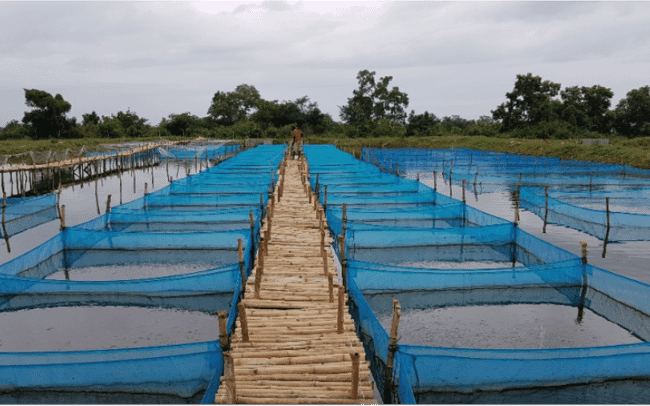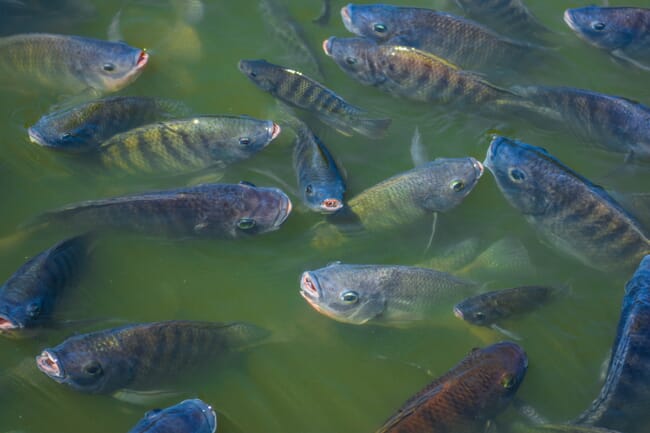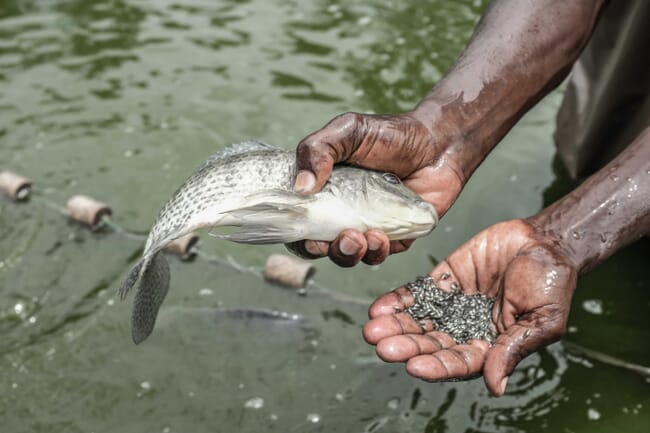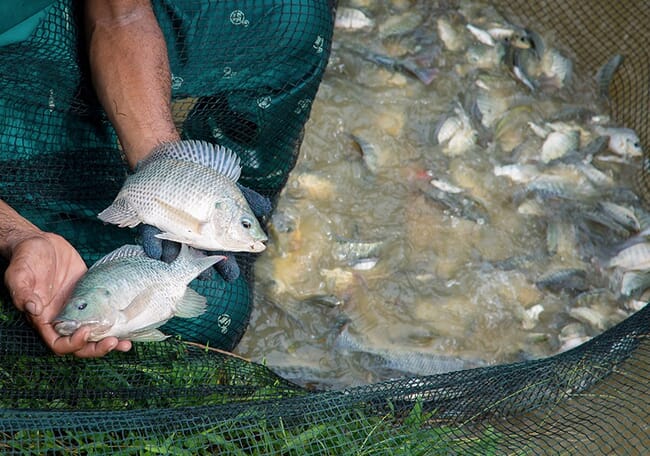
The transfer will kickstart a new domestic industry in Nigeria for tilapia farming leading to improved livelihoods as well as food and nutrition security among the Nigerian population.
WorldFish announced an inclusive legal agreement with Premium Aquaculture Limited (PAL) for the transfer of genetically improved farmed tilapia to Nigeria. This agreement will augur the establishment of a GIFT-based aquaculture industry in Nigeria. Bill and Melinda Gates Foundation (BMGF) and the United States Agency for International Development (USAID) are collaborating with WorldFish and PAL on this endeavour with the aim of having WorldFish/PAL GIFT tilapia in Nigerian fish markets by late 2023.
Elaborating on the agreement, WorldFish project leader for the Bill and Melinda Gates Project Dr Colin Shelley said, “this agreement reflects WorldFish’s ambitions for future growth and investment in the African continent and its confidence to impact at scale to support small-scale aquaculture producers charter their pathway out of poverty.”
Tilapia is one of the most important groups of aquaculture species in the world. In 2018, of the 82.1 million metric tonnes of aquaculture food-fish production, 5.5 million metric tonnes came from tilapia — 81 percent of which was Nile tilapia (Oreochromis niloticus).
The main bottleneck to expanding tilapia aquaculture and production – including through smallholder-based farming – is the lack of a systematically managed and maintained breeding population to produce high-quality seed in required quantities that are accessible to farmers year-round.
On the importance of fish to Nigeria, WorldFish project advisor Dr Rohana Subasinghe said, “fish is critically important to Nigeria for food and nutritional security, foreign exchange, employment and livelihoods. Yet, a steep change in supplies and distribution is necessary over the next 20 years to realise its full potential.”
Recognising the importance of using an improved variety of tilapia to support the necessary growth of the tilapia sector, Nigeria’s Minister of Agriculture and Rural Development recently made an official request to WorldFish to transfer GIFT – a Nile tilapia variety genetically improved through decades of selective breeding by WorldFish – from Malaysia to Nigeria and to assist in creating a GIFT seed industry in the country.
WorldFish’s GIFT has been distributed to many developing nations. Several studies have identified socio-economic benefits arising from farming GIFT, including improved rural income and employment. According to the Asian Development Bank (ADB), the economic internal rate of return on investments in GIFT development and dissemination was more than 70 percent over a period from 1988 to 2010, with an estimated net present value of $368 million in constant 2001 prices. It has been estimated that nearly 50 percent of global Nile tilapia aquaculture production is now GIFT and GIFT-derived. About 75 percent of tilapia consumed in developing countries appear to be GIFT, confirming that the strain has the greatest potential for alleviating global poverty and hunger and improving nutrition.

In general, tilapia is a food commodity with a low-carbon footprint in terms of greenhouse gas emissions that can improve the resilience of both small-scale farms and the overall food system. WorldFish believes that transferring GIFT will kickstart a new domestic industry in Nigeria for tilapia farming. It would increase smallholder income and employment, deliver significant quantities of new fish products to narrow the fish supply-demand gap and lead to better nutrition and health among the Nigerian population. Small-scale producer GIFT farming would create an industry that will increase the availability of a low-carbon food commodity in the Nigerian markets.
On the purpose of the research and development (R&D) programme, WorldFish Nigeria country manager Dr Sunil Siriwardena explained, “in partnership with BMGF and USAID, WorldFish is investing in an R&D programme that will provide the foundation for establishing a sustainable private sector-based GIFT seed and grow-out industry in Nigeria.
"This programme is designed to (a) prepare and bio-securely transfer GIFT from Malaysia to Nigeria, (b) establish a GIFT breeding population for disease-free broodstock/seed dissemination and (c) establish a healthy GIFT seed industry/business and GIFT-seed-based smallholder out-grower business/industry in Nigeria.”
GIFT fry will be transferred from WorldFish Headquarters in Malaysia to Premium Aquaculture Limited’s, secured quarantine facility in Nigeria’s Ogun State under a robust environmental risk management programme and strategy. Premium Aquaculture, a subsidiary of Stallion Group, is the largest tilapia producer in Nigeria. In collaboration with PAL and the Government of Nigeria, WorldFish has completed a full-scale GIFT transfer risk assessment and the fry transfer will take place in May 2022.

© Msingi
On the impact of the collaboration between PAL and WorldFish, Premium Aquaculture Limited senior manager Govinda Raju said, “this technical collaboration is poised to propagate and disseminate WorldFish’s 17th generation fast-growing strain of GIFT tilapia in Nigeria. We are highly confident that it will boost tilapia production in the country as well as farmers’ income.”
The agreement also involves the establishment of a parental broodstock as well as to breed, propagate and disseminate fry and fingerling across Nigeria. Regular health checks will be conducted during the growth of the fry. Second-generation progeny resulting from the original stock from Malaysia will be transferred to other states for breeding and grow-out in both ponds and cage systems in Nigeria. As Nile tilapia is a native species in Nigeria, the freshwater habitats of Nigeria are suitable for growth and propagation.

This is the first private sector partnership between WorldFish and a hatchery operator. It reflects WorldFish’s intention to commercialise its genetic assets, work toward financially sustainable operations and reduce its dependency on donor funding for its genetic R&D.
The fish to be transferred will be generation 17 from WorldFish’s genetics programme and represent the fastest-growing fish yet.




